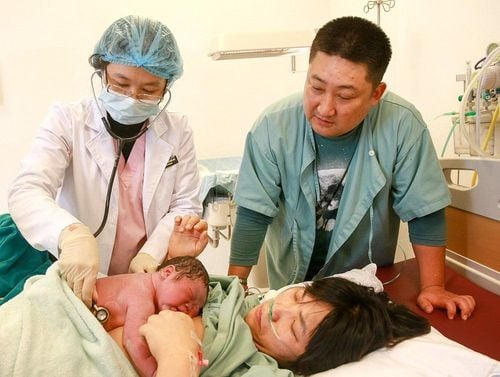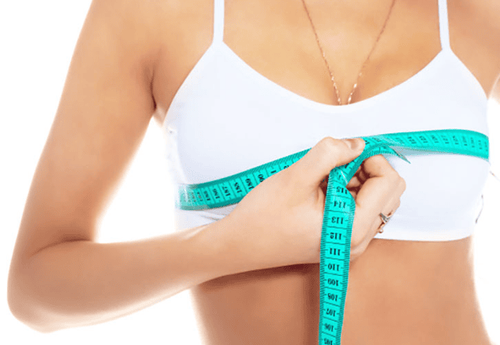This is an automatically translated article.
The article was consulted with Doctor Bui Duc Hoan - Department of Obstetrics and Gynecology, Vinmec Nha Trang International Hospital.After nine months and ten days of painful labor, breastfeeding days are a new journey. At this time, the source of nutrition for the baby is completely from breast milk. Therefore, what should a nursing mother eat to increase the quality of breast milk is a matter of great concern, especially for first-time mothers.
When formulating nutrition in nursing mothers, the following factors should be ensured:
1. Enough energy
It is undeniable that raising children is considered a heavy labor, consuming a lot of energy of the mother every day. Therefore, the mother's diet needs enough energy. Specifically, the amount of calories needed for this stage needs to be increased by 500 calories compared to normal needs.
To do this, it is very important to eat a healthy, varied and rich food source. Do not focus too much on the number of calories, eat according to your ability. It is the mother's instinctive need that determines how much food is enough for her baby.
Although there are many women who want to lose weight quickly after giving birth, it takes a lot of patience. You have already lost some weight after giving birth, maintain that weight or even increase it a little to have an abundant milk supply in the first 3 months of breastfeeding. All causes of weight loss during this time make breast milk decrease in both quality and quantity. In return, you can burn excess fat naturally after 3 to 6 months of breastfeeding and start losing more weight than moms who don't breastfeed.
Trắc nghiệm: Bổ sung canxi sau sinh cho sản phụ như thế nào?
Bổ sung canxi sau sinh cho sản phụ là việc làm vô cùng cần thiết, đặc biệt với những người nuôi con bằng sữa mẹ hoàn toàn. Trường hợp mẹ sau sinh không bổ sung canxi hoặc bổ sung không đúng cách sẽ ảnh hưởng rất nhiều đến sức khỏe của mẹ và sự phát triển toàn diện của bé. Bài trắc nghiệm dưới đây sẽ giúp mọi người hiểu hơn về tầm quan trọng của việc bổ sung canxi sau sinh cho sản phụ và bổ sung thế nào cho đúng cách, an toàn.2. Eat nutritious food
A woman's nutritional needs will be significantly higher during breastfeeding. Accordingly, the nutrients in the mother's diet can directly affect the quality of breast milk as well as the health of the baby in the first years of life.
So it's important to eat a variety of nutritious foods to ensure that you're getting all the nutrients you and your baby need. Here are some suggestions for some nutritious foods that nursing mothers should eat:
Fish and seafood: Salmon, sardines, shrimp, crab, seaweed Meat: Beef, lamb, pork and internal organs, such as liver, heart Fruits and vegetables: Tomatoes, cabbage, kale, broccoli Nuts and seeds: Almonds, walnuts, chia seeds, chestnuts, and legumes Others: Eggs, oats, potatoes, dark chocolate. In addition, mothers also need to avoid processed foods as much as possible because they are often too high in calories, synthetic sugars and unhealthy fats.
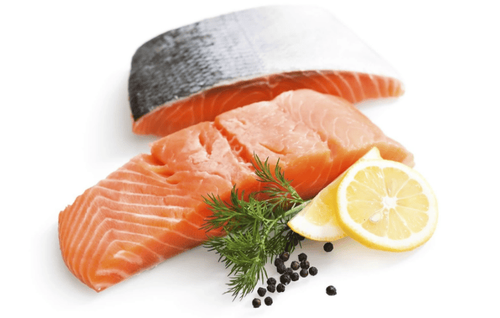
Cá hồi chứa nhiều chất dinh dưỡng tốt cho mẹ đang cho con bú
3. Not to lack vitamins and minerals
Not only pay attention to the energy and nutrition of each meal, nursing mothers must also pay attention to vitamins and minerals.
Vitamins and minerals are divided into two groups, depending on their presence in breast milk.
Group 1 includes substances that depend entirely on the diet. Accordingly, getting enough of the substances in group 1 is essential for both you and your baby. The substances in group 1 are:
Vitamin B1 (Thiamin) found in fish, pork, seeds, nuts and bread; Vitamin B2 (Riboflavin) found in cheese, almonds, nuts, red meat, oily fish and eggs; Vitamin B6 is found in seeds, nuts, fish, poultry, pork, bananas and dried fruit; Vitamin B12 is found in shellfish, liver, crab and shrimp; Choline is found in eggs, beef liver, chicken liver, fish and peanuts; Vitamin A is found in sweet potatoes, carrots, dark green vegetables, organ meats and eggs; Vitamin D is found in cod liver oil, oily fish, some mushrooms; Selenium is found in Brazil nuts, seafood, fish, wheat and seeds, and Iodine is in dried seaweed, cod, milk, and iodized salt. Meanwhile, group 2 vitamins and minerals are secreted into breast milk regardless of intake or health status. Adequate supply of these substances is only good for the mother, but if the mother is not healthy, the quality of breast milk is difficult to be complete. Substances in group 2 are:
Folate found in beans, lentils, green vegetables, asparagus and avocados; Calcium is found in milk, yogurt, cheese, green vegetables and legumes; Iron is found in red meat, pork, poultry, seafood, beans, green vegetables and dried fruits; Copper found in shellfish, whole grains, nuts, beans, organ meats and potatoes; Zinc is found in oysters, red meat, poultry, beans, nuts, and dairy. If the diet is not enough, the body will take these nutrients from the bones and tissues in the mother's body to secrete into milk.
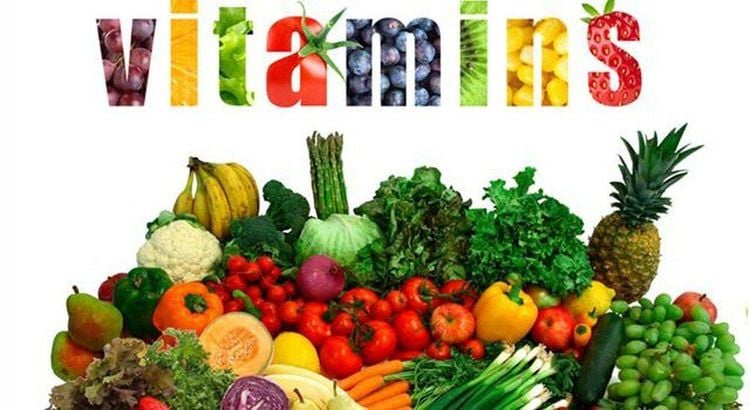
Mẹ sau sinh cần quan tâm đến các loại vitamin và khoáng chất
4. Add more multivitamins
If it is not possible to prepare many meals that meet the above requirements, nursing mothers should consider drinking more synthetic vitamins. This source of vitamins and minerals is completely absorbed and excreted into breast milk. In particular, some substances should be noted as follows:
Vitamin B12: The amount of vitamin B12 is not always absorbed effectively from the usual diet. Therefore, breastfeeding women should be encouraged to supplement with oral drugs; Omega-3 (DHA): This substance found in seafood, including fatty fish and algae, is an important component of the central nervous system, skin and eyes. If your intake is low, the amount excreted in your breast milk will also be low, affecting your baby's intelligence and eyesight later in life. Therefore, pregnant and lactating women should get at least 2.6 grams of omega-3 fatty acids and 100 to 300 mg of DHA per day; Vitamin D: Although Vitamin D is found in fatty fish, cod liver oil, etc., it still appears in low amounts in breast milk, especially if there is little exposure to sunlight. Accordingly, a mother needs to have very high levels of vitamin D (more than 6,000 IU per day) to provide enough for the baby through breast milk. Meanwhile, in fact, breast milk cannot meet this need, so vitamin D is often supplemented for babies from 2 to 4 weeks old.
5. Drink lots of water
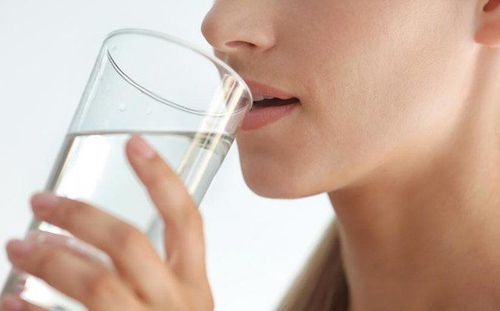
Mẹ cần uống đủ nước để cơ thể sản xuất sữa
It is normal to drink plenty of water to quench thirst when you are breastfeeding. The reason is that when breastfeeding, the hormone oxytocin increases, the mother often feels thirsty.
This is also a natural reflex, reminding mothers to drink enough water for the body to produce milk. It is difficult to determine the amount of water to drink daily. Accordingly, nursing mothers should drink water as soon as they feel thirsty and drink until they feel thirsty. Even if you feel very tired, dizzy, faint and your milk volume is also reduced, you need to drink more water to make enough milk for your baby.
6. What should be avoided in the diet while breastfeeding?
Spicy, hot, strong-flavored foods... are those that should be avoided while breastfeeding. Because babies are very "sensitive", they will cry or even stop nursing if the mother eats a lot of these foods.
Besides, stimulants such as alcohol, coffee, strong tea should also be avoided. These substances completely pass through breast milk, adversely affecting the child's nerves and easily making it difficult for children to sleep, or restless, startled, crying.
Mother's food is the absolute source of life for the baby in the first six months of life. It is extremely necessary to be equipped with knowledge about nutrition for nursing mothers right from the time they are not pregnant or before giving birth, as a premise to prepare the best for their children from day one. firstly.
Postpartum nutrition is important for breastfeeding mothers, so not eating well, anorexia after birth affects milk quality and postpartum recovery. Mothers easily fall into malnutrition after giving birth, losing strength after giving birth and not recovering.
For postnatal nutrition examination and postpartum nutrition counseling, you can contact Vinmec International General Hospital to be assigned specific treatment by doctors for each case.
Please dial HOTLINE for more information or register for an appointment HERE. Download MyVinmec app to make appointments faster and to manage your bookings easily.





